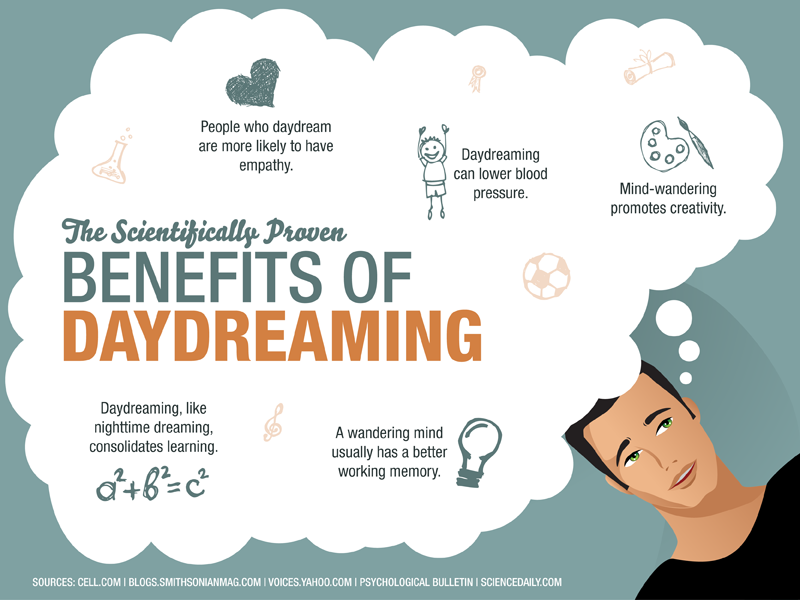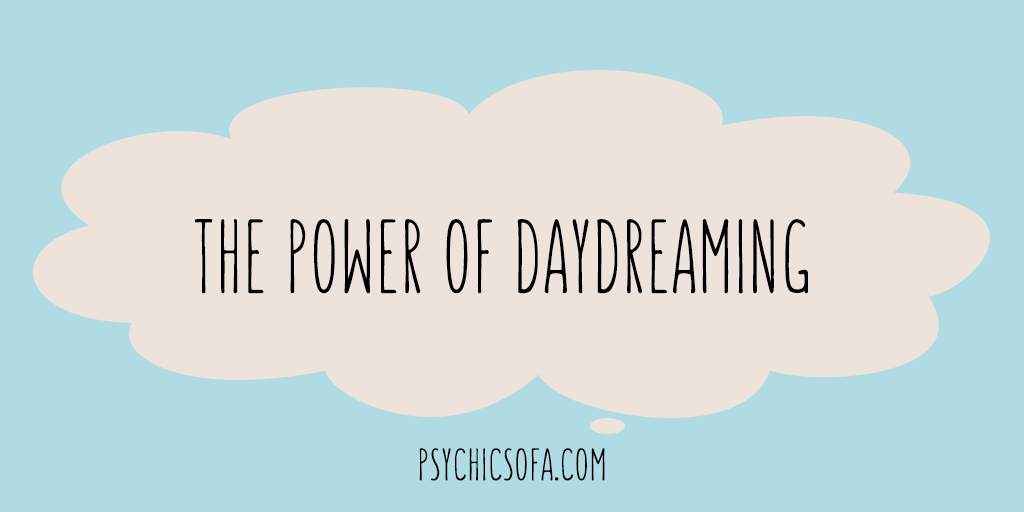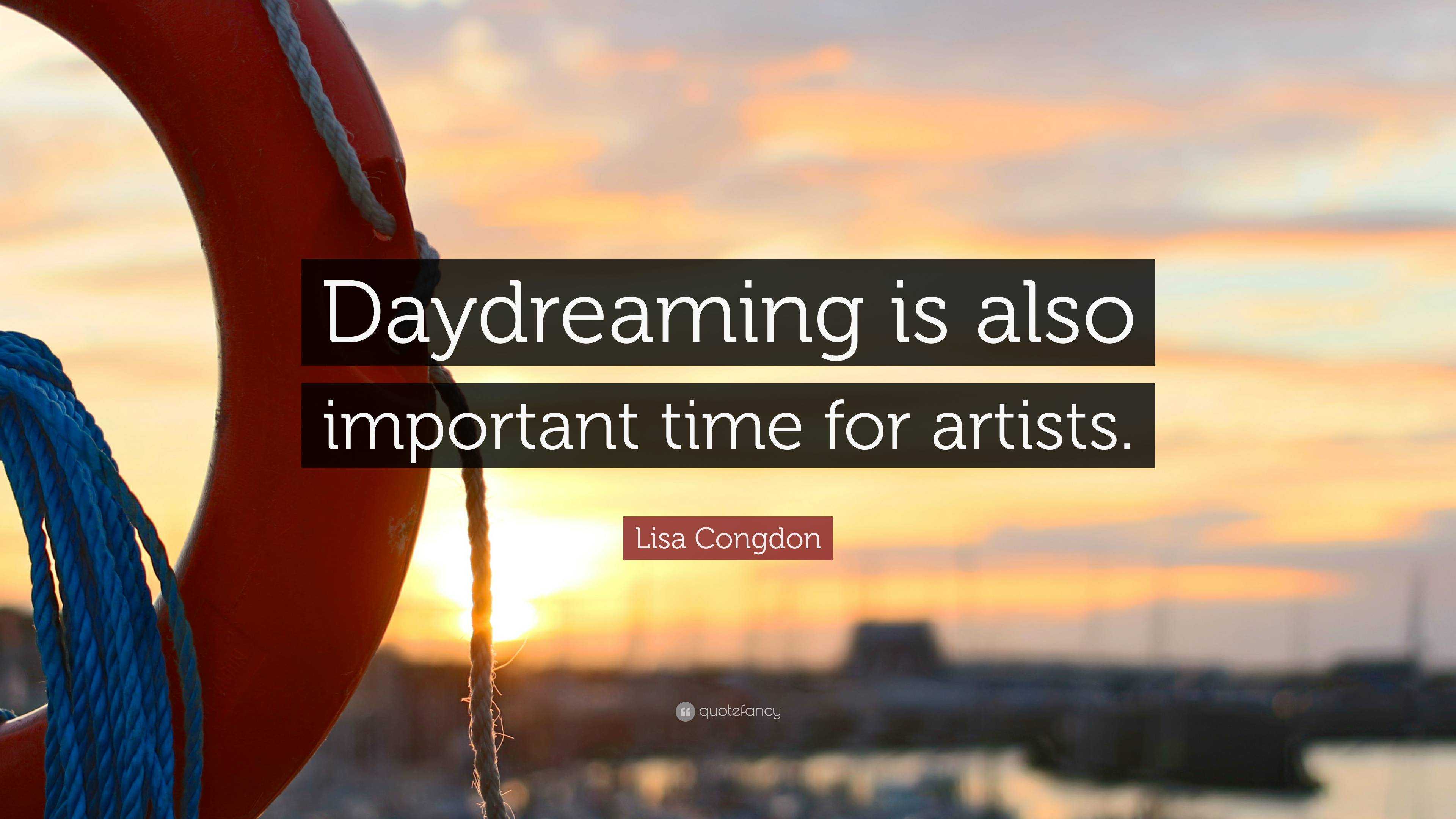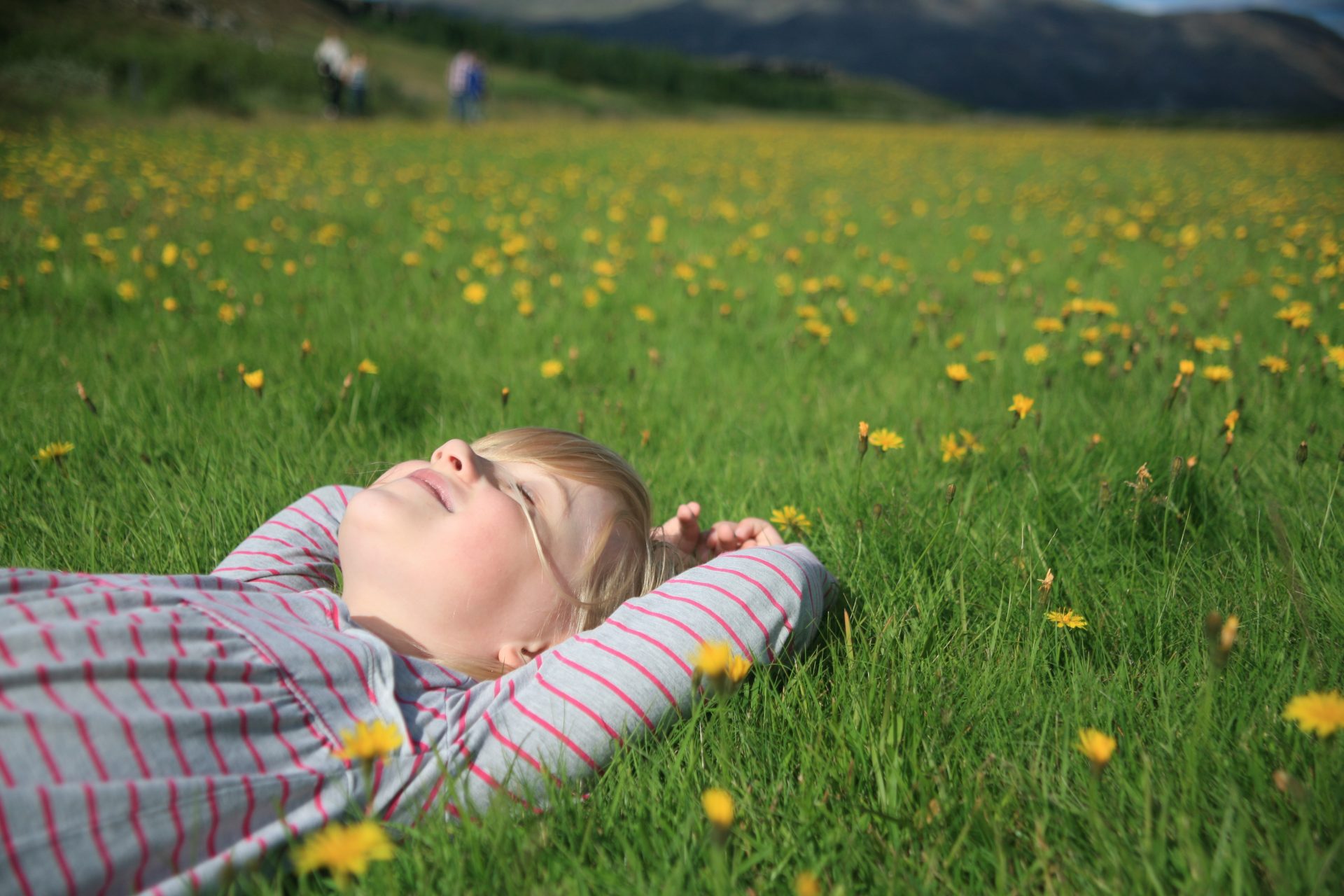
Quotes about Daydreaming (110 quotes)
Daydreaming may be good for creativity Anecdotally, mind-wandering has been associated with creativity for centuries. But this link to creativity may depend on the type of mind-wandering you do, as a new study by the University of Calgary's Julia Kam and her colleagues suggests.

Surprising Facts About Daydreaming Live Science
"Daydreaming can be an indication that someone is suffering from concentration difficulty, which is seen in many mental illnesses, including depression, anxiety, post-traumatic stress disorder,.

Why You Should Daydream More (In 3 Minutes) HuffPost
A daydream is when your mind wanders and your attention shifts from the task at hand whether it be physical or mental, to a place that is entirely your own. Daydreams consist of little videos of yourself in past, future and present events.

The Scientifically Proven Benefits of Daydreaming Naked Reverie
Daydreaming is a capability supported by our ability to imagine (which some people associate with "right-brain" activities) whereas being logical, verbal, and orderly is supported by our rational.

Why Daydreaming Is Productive goop
When you are daydreaming (or mind-wandering, as it is more accurately referred to within scientific circles), memories that you thought were lost forever can come to the surface again, or you may suddenly find yourself realizing that you have forgotten someone's birthday — the kinds of things that don't happen when you are deep in concentration.

You can spend your time daydreaming or make use of it in other ways. Erik… Maladaptive
They found the themes of "distraction from an unpleasant reality," "wish fulfillment," and "fighting boredom " to be the most commonly cited daydreaming themes. Other common themes.

Daydreaming at work could carry ‘significant creative benefits’, research suggests The
During quiet waking, brain activity in mice suggests the animals are daydreaming about a recent image. Having daydreams about a recently viewed image predicted how the brain would respond to the image in the future. The findings provide a clue that daydreams may play a role in brain plasticity.

Maladaptive daydreaming Symptoms and management
An overlooked brain region Scientists have spent considerable time studying how neurons replay past events to form memories and map the physical environment in the hippocampus, a seahorse-shaped brain region that plays a key role in memory and spatial navigation.

Daydreaming is Good. It Means You’re Smart Dream Health
Excessive daydreaming is often associated with anxiety, and some researchers have found that it may be linked to feelings of guilt, dysphoria, and inability to control your attention. Mental.

The Power Of Daydreaming
When we consider that daydreaming is a hallmark of ADD/ADHD, one has to question if neurodivergent children are being labeled as "underachievers" or "troublemakers" for simply engaging in.

Lisa Congdon Quote “Daydreaming is also important time for artists.”
After a long day at work or after a disagreement with a friend, let your mind float away to something completely unrelated and pleasurable. This might help you forget about and distance yourself from the worrisome circumstances.

Daydreaming shows your smartness, creativity
Daydreaming — when our attention shifts to thoughts unrelated to our environment and experience — might seem like an easy escape from the here and now, but it can be a complicated mental task..

Daydreams are Powerful! Creative World School
A wandering mind. Daydreaming sometimes gets a bad reputation: Students who don't pay attention in class end up having trouble completing coursework, and workers who spend meetings thinking about.

How to Stop Daydreaming and Start Living Your Life
Maladaptive daydreaming occurs when a person engages in prolonged bouts of daydreaming, often for hours at a time, to cope with a problem. The daydreaming is "maladaptive" because it causes significant distress and impairment. The daydreams are often vivid and complex plots that elicit a great deal of emotion.

What is daydreaming? OverSixty
Overview What is maladaptive daydreaming? Maladaptive daydreaming is a mental health issue where a person daydreams excessively, sometimes for hours at a time. "Maladaptive" means this type of daydreaming is an unhealthy or negative attempt to cope with or adapt to a problem.

Scientists say daydreaming gives you a brain boost MiNDFOOD
Humans spend a ridiculous amount of time daydreaming; in some individuals, as much as 50% of their time not spent sleeping, according some estimates. The technical term psychologists use to.